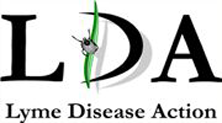As we reported back in November the Health Protection Research Unit in Emerging and Zoonotic Infections (HPRU EZI) and Public Health England (PHE) held a research workshop on November 21/22 2019. You can read the official report summarising what was discussed.
Day 1. This was solely for researchers and health professionals; patients were not invited. 64 people attended from England, Scotland and Wales, listening to presentations on recent research on ticks and tick-borne disease in the UK. The agenda, with titles of the talks, is at the end of the official report. Progress was compared with the meeting held in June 2017: for a summary of that earlier workshop see LDA 2017 conference proceedings, where this was reported. The group then held discussions on the remaining research gaps, opportunities and challenges. These are now reported in the official summary.
Day 2. Representatives of 8 patient groups attended this day and each gave a presentation. We were given specific instructions “keep to time, don’t overrun, we’ll set an alarm to warn 1 minute to go”. Were they worried about what the patients might say? Perhaps to their surprise there were some very cogent, focused and pertinent presentations from the patient groups. It is odd how healthcare professionals forget that many patients are professionals in their own work and used to giving presentations. All patient groups had been asked to submit an abstract of their top 5 research priorities in advance, and it is these written priorities which are quoted in the official summary.
LDA’s chairman, Stella Huyshe-Shires, presented for LDA, and her presentation is here.
Reading the summary, it is notable that, as was the position in 2017, tick ecology is still the most active area of research, despite it being absent from the patient groups’ priorities. There are very useful studies in this area which will help inform prevention, but a shift to what patients feel are the important issues would be welcome.
Note this at the end of the official executive summary:
The inclusion of patient advocacy groups for day 2 was an important step forward for patient and public involvement (PPI) in Lyme disease/TBD research in the UK. It is hoped that the spirit of collaboration fostered at this event continues as future research is planned, designed and conducted.
Research is a long, slow process. After the decision and outline, and maybe appointing the PhD student, ethical approval is obtained, the detailed investigations are planned and carried out. Then the data as analysed, a paper written and submitted to a journal. Very possibly, this being Lyme disease with all the baggage that comes with it, peer reviewers may have very specific views and the paper may be rejected by the first journal. Then it has to be rewritten to target a different journal, which may well ask for changes. Then if all goes well, publication follows. Those of you who attended our 2018 conference will recall one researcher going into detail about his journey.
The discussions throughout day 2 of the workshop were inclusive, and thoughts and opinions were freely exchanged. It was useful for researchers to hear the views of patients and for patients to be able to hear and discuss the difficulties in research.
Whether this day will turn out to be a watershed moment and we will all move forward together or whether everyone will slip back into their ingrained ways of thinking, time will tell.

 Printer Friendly
Printer Friendly